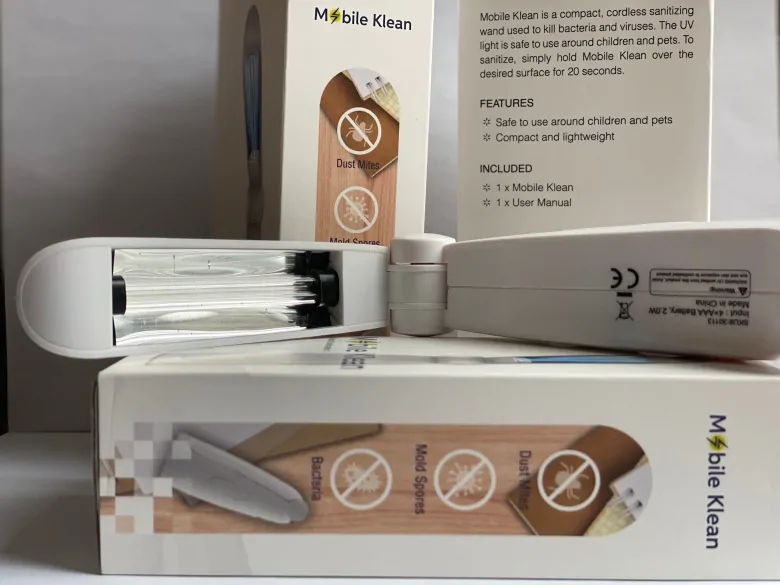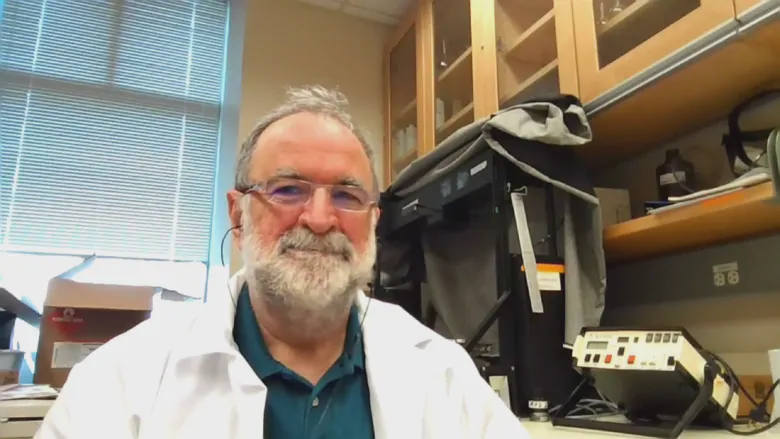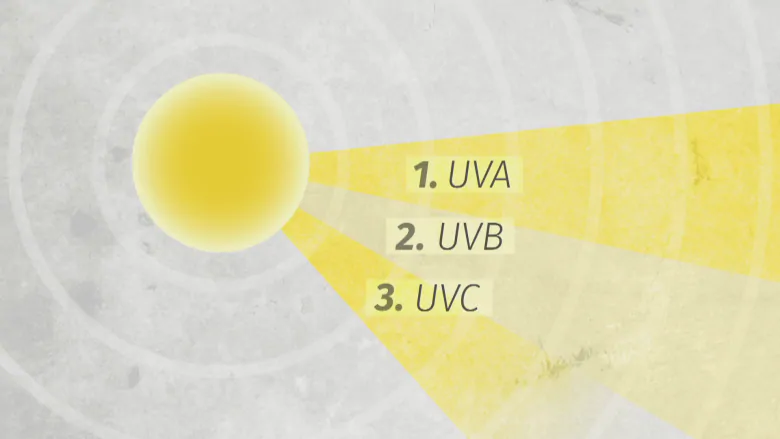Health Canada says it is reviewing how UV wands and devices are able to find their way onto store shelves and into the hands of Canadian consumers after a CBC Marketplace investigation found there is just one consumer UV device that is properly cleared for sale in this country.
In addition to not being properly approved for sale in Canada, Marketplace has also learned the majority of those UV wands and devices on the market are likely not living up to what they claim to do, and can even pose potential harm to users.
Consumer UV wands and devices that claim to reduce microorganisms on surfaces or objects but don’t claim to mitigate or prevent disease must be properly registered under the Pest Control Products Act (PCPA) prior to manufacturing, importation, distribution or use in Canada.
To date, Health Canada said it has approved only one UV product for registration under the PCPA: a Dyson humidifier.
In an email to Marketplace, Health Canada was clear that, “No other product under any regulations has been authorized to use claims regarding UV light to disinfect, sterilize or decontaminate products or surfaces.”
And yet ads for UV wands and devices claiming to rid a surface or object of harmful bacteria and viruses in seconds have flooded the marketplace since the coronavirus pandemic first took hold last March. Prices for consumer products range from $20 to a few hundred dollars.
Marketplace was able to purchase a number of devices from a variety of brick and mortar and online retailers. According to the PCPA, the act of selling, distributing, importing, manufacturing or even use of a UV wand that is not properly registered under the PCPA is not permitted in Canada.
Those found guilty of the above can face a maximum fine of up to $500,000 or three years imprisonment.
Health Canada said devices that are approved for registration under the PCPA will be clearly marked with a Pest Control Product (PCP) number on the packaging and the words, “Pest Control Products Act” or “P.C.P. Act.”
None of the devices Marketplace purchased featured these markings, including a Homedics UV sanitizer bag. In an email, the company told Marketplace it believed its product to be exempt from registration under the PCPA.
Health Canada has since confirmed to Marketplace the product, which makes clear claims about killing 99.9 per cent of bacteria and viruses on objects you place inside, is subject to the PCPA.
Health Canada said it is reviewing the information Marketplace presented and will be following up with the company. If non-compliance is confirmed, the regulator said it will take action.
Homedics maintains its product is exempt from registration and will follow up with the regulator directly. The company also told Marketplace, “We are not an organization that seeks to avoid scrutiny, and in fact pride ourselves on compliance.”
‘There’s been a regulatory abyss,’ products often don’t live up to claims, says expert
After inquiries from Marketplace about the availability of UV devices to Canadian consumers, Health Canada said it is now “reviewing the existing pre- and post-market regulatory framework to determine whether additional requirements should be required for these devices.”
In addition to not being approved here, Marketplace has also learned the majority of those UV wands and devices on the market are likely not living up to claims they can kill 99.9 per cent of viruses or bacteria on an object or surface, especially when it comes to COVID-19.
“What we basically see on the market is that the wands do not achieve the level of disinfection that they might claim,” said James Malley, professor of civil and environmental engineering at the University of New Hampshire.

Malley said more regulation and verification of claims made by products marketed and sold to the general public is long overdue.
“There’s been a regulatory abyss,” he said.
Malley has tested a range of products on the market, including a number of consumer devices, none of which achieved 99.99 per cent disinfection. The majority of them achieved somewhere between 50 and 80 per cent reduction in bacteria and virus. The devices that did work well were home medical devices that sell for hundreds of dollars or larger commercial devices that sell for thousands of dollars.
“You’re pretty much going to get what you pay for,” said Malley.
The majority of UV devices Marketplace found for sale are wands, but there are other styles of consumer UV devices for sale including bags and even cups.

Makers of the Homedics UV sanitizer bag told Marketplace it has safeguards in its bag to protect users, its lights are designed to turn on when the bag is closed and items placed inside. The company also said it has done lab tests to ensure its product is the most effective it can be, but admitted it’s impossible to guarantee 100 per cent of germs will be eliminated from different objects.
Another UV device Marketplace looked at was Ontel’s Safe and Healthy UV-C sanitizing light. The company said it provides safety precautions to its customers, and its product meets regulatory standards. It too, however, is not registered under the PCPA. Marketplace was able to find the product for sale through a number of online Canadian retailers, but the company insisted it does not sell to Canadians.
Mobile Klean, another UV wand Marketplace purchased, claims to reduce your family’s chances of getting sick by killing 99.9 per cent of surface bacteria. The company did not respond to Marketplace’s questions about the validity of its claims.
Health Canada issued warning about coronavirus claims, potential harm
Health Canada said its enforcement has, to date, been focused on UV devices making claims to kill the novel coronavirus, but that will shift “given the increasing number and variety of UV devices being found on the market.”
None of the devices Marketplace purchased made claims to kill the coronavirus.
Health Canada has previously issued warnings to consumers who had purchased wands making COVID claims to stop using them as there is no evidence or proof any UV wand or device is capable of killing the coronavirus.
Health Canada’s best advice for consumers with questions about a UV wand or device that makes other germ-killing claims is to stop using it and consider reporting it through its website.
Health Canada, the World Health Organization and other UV experts have also issued clear warnings that UVC light can be dangerous.

There are three types of ultraviolet radiation: UVA, UVB and UVC. Sunscreen protects humans from the UVA and UVB light that reaches earth. UVA and UVB light are known to cause sunburns and skin cancers. UVC light is filtered out by the ozone layer, and does not reach the earth’s surface, but is typically recreated artificially in light bulbs and lasers.
Health Canada said that UV devices, “especially those using UVC light, present risks from exposure to ultraviolet radiation,” particularly to the eyes and skin. Wavelength, dose and duration of exposure all factor into the severity of the risk and injury, the agency said, risk that can be made worse if the product is “improperly designed, used or installed.”
User error also to blame, expert says
An effective UV wand or device must employ UVC light, and typically emit a dose of UVC that falls between 220 and 280 nanometers. The majority of consumer UV devices on the market are likely using the wrong type of UV light or a light that simply isn’t strong or powerful enough, according to experts.
Another reason that UV devices may not be as effective as they claim to be is that consumers do not use the device in the way it was intended, Malley said.
“A human is not likely to hold it close enough for long enough and not likely to cover the whole area,” he said.
In order to effectively clean an object or device with a UV light, the entire surface must be treated evenly. Any areas that are hidden or slightly shaded from the light, or even covered with a small amount of dust, will not be cleaned properly.
UVC light works by destroying the bond between DNA and RNA inside a bacteria or virus, essentially preventing it from replicating or spreading.
UVC light takes time to work well, according to Malley.
“The good devices we’ve tested are typically having reaction times of five minutes, some of them 20 minutes.”
Malley’s biggest concern with consumer UV wands and devices is the false sense of security they may provide to consumers during the pandemic. He echoed calls from public health experts, which recommend proven measures of disinfection and proper hygiene.
“We need those multiple barriers. We need the masks, the hand sanitizer, the social distancing. There’s no UV device on the market that should ever take away from that,” said Malley.
Other experts, including Dominik Mertz, associate professor of medicine at McMaster University in Hamilton, Ont., are quick to point out that many of the objects that wands and devices claim to be capable of disinfecting are not necessarily those that people need to concern themselves with cleaning.
Mertz argues that items like your car keys, wallet and cellphone are not being handed out and touched by others. Even if you are worried about potential bacteria and viruses on those items, Mertz suggested a far simpler method of cleaning them: just wipe them down.
- Watch full episodes of Marketplace on CBC Gem, the CBC’s streaming service.





